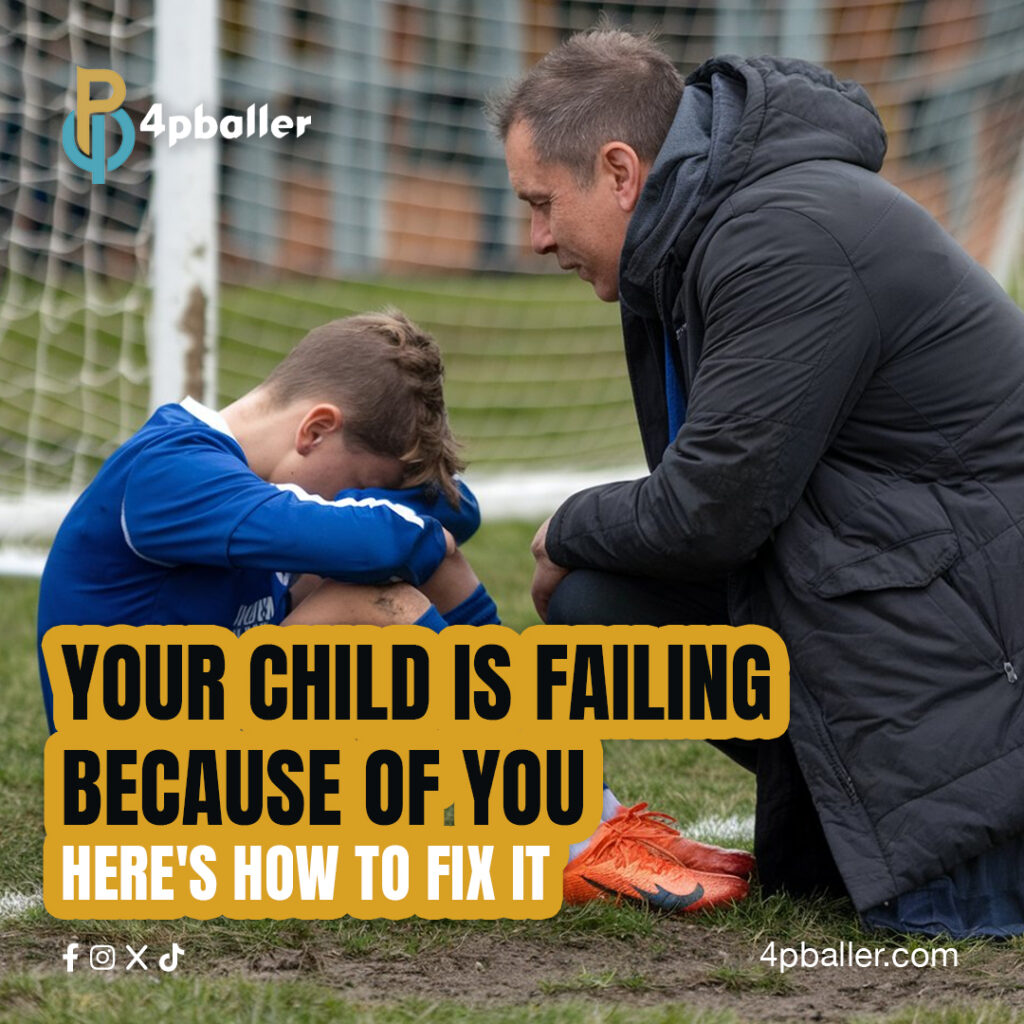Football is a highly competitive sport, and the journey to becoming a professional player is filled with challenges. Unfortunately, many young athletes fail to achieve their dreams due to a lack of support and understanding from their parents. According to a study by the Aspen Institute, about 70% of children quit organized sports by the age of 13, with a significant number citing lack of parental support as a contributing factor.
So, what are the common mistakes parents make that hinder their child’s football career? Let’s explore four critical areas where parents often go wrong and how to fix them.
1. Overemphasizing Winning
One of the biggest mistakes parents make is focusing too much on winning rather than the process of learning and improving. This pressure can lead to anxiety and burnout. A survey by the National Alliance for Youth Sports (NAYS) found that 75% of young athletes who quit sports do so because it’s no longer fun.
How to Fix It:
Focus on Development: Emphasize the importance of skill development, teamwork, and personal growth over winning. Encourage your child to enjoy the process and learn from both victories and defeats.
Positive Reinforcement: Provide positive reinforcement for effort and improvement, not just for winning. This helps build a growth mindset and fosters a love for the game.
2. Lack of Emotional Support
Emotional support is crucial for young athletes, especially when they face rejection, injuries, or mental breakdowns. Without this support, children may struggle to cope with the emotional demands of the sport. According to the American Psychological Association (APA), emotional support from parents is vital for an athlete’s mental well-being and performance.
How to Fix It:
Be Present: Attend games and practices to show your support. Your presence can make a significant difference in your child’s confidence and motivation.
Open Communication: Create a safe space for your child to express their feelings and concerns. Listen actively and offer encouragement and understanding.
3. Ignoring Injuries and Recovery
Injuries are a common part of any athletic career, but ignoring them or rushing the recovery process can have long-term consequences. A study by the British Journal of Sports Medicine highlights the importance of proper injury management and psychological support during recovery.
How to Fix It:
Seek Professional Help: Ensure your child receives proper medical care and follows a structured rehabilitation plan. Consult with sports medicine specialists and physical therapists.
Emotional Support: Provide emotional support during the recovery process. Encourage your child to stay positive and focus on their progress, rather than the setback.
4. Not Encouraging a Balanced Lifestyle
A balanced lifestyle is essential for long-term success in any sport. Overemphasizing football at the expense of other aspects of life can lead to burnout and decreased performance. The Centers for Disease Control and Prevention (CDC) emphasizes the importance of a balanced lifestyle for overall health and well-being.
How to Fix It:
Promote Healthy Habits: Encourage a healthy diet, adequate rest, and regular exercise. These habits contribute to overall well-being and performance.
Diversify Interests: Encourage your child to explore other interests and activities. This can prevent burnout and help them develop a well-rounded personality.
Conclusion
Parental support plays a pivotal role in a child’s football career. You need to start avoiding common mistakes and providing the right kind of support, you can help your child navigate the challenges of the sport and achieve their dreams. Remember, your role is not just to push your child to win but to nurture their love for the game and support their overall development.
For more resources and support, consider exploring organizations like the Positive Coaching Alliance and the Youth Sport Trust, which offer valuable insights and tools for parents and young athletes.
Together, we can ensure that young footballers have the support they need to pursue their dreams and thrive in their athletic journeys.

